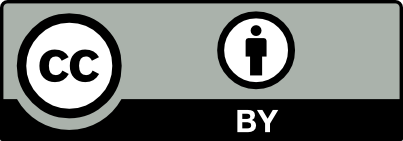About the Journal
Aims and scope
South Sustainability is a peer review, open access and multidisciplinar journal focused on research and development on diverse fields related to environmental sustainability. Edited by Environmental Science Department from the Universidad Científica del Sur (Lima, Perú) and open for publications, free of charges, for researchers, profesionals and students.
The publication is continuous, with a first number in January-June and a second in July-December. The focus of the publications is both regional and international. Original research articles, review articles, methods, policy briefs and letters to the editor are admited for publication. For further information the Author Guidelines/a can be consulted.
Research themes accepted in the next fields of study both in basic and applied research:
- Conservation and ecology, agronomy, atmospheric science, biogeochemistry, civil engineering, urbanistic science and studies, environmental engineering, environmental science, forestry science, agroforestry engineering, geography, hydrology and water studies, industrial ecology, oceanography, soil science and renewable energy.
Open Access policy
South Sustainability is an open access journal based on the support to the free knowledgement and is ruled under a Creative Commons de Reconocimiento (CC BY 4.0) licence. This means that you are free to share and adapt, provided that 1) credit must be properly acknowledged and reported if changes have been made to the original work. You may do so in any reasonable way, but not in a way that suggests that you or your use is endorsed by the licensor. 2) No legal or technological limitations may apply that restrict the use permitted by this license:

Editorial process
All the articles submitted to South Sustainability will be evaluated in first instance by a collegiate decision by the Editors in Chief and in some cases also by a Associate Editor with expertice in the area of the research. This first decision will take into account the interest for the journal, the originality criteria and the compliance of the author´ s guideline. The decision could be the acceptance, rejection or request of modifications.
Once the article is acepted in the first revision, it woul be sent to 2 reviewers (external to the Editorial Committee) with recognized expertise in the topic. This revisions consist in a simple blind (the reviewers maintain the anonymity) and ad honorem. The reviewer´ s decision could be acceptance for publication without changes, the rejection for publication or the request of modifications to solve (this modifications could be mayor revisions or minor revisions). The Editorial Committee reserves the right to send the article to a different reviewer in case of unsatisfactory answer. The Editorial Committee make the final decision about the publication of the article based on the reviewers suggestions.
In case of having to raise the observations, the author must respond with the corrected article and a letter responding to the reviewers' comments. The Editorial Committee decides if the updated version has adequately corrected the observations or if a re-evaluation is required. Finally, you will determine if the article is accepted for publication or rejected.
Each article acepted for publication the edition, layout and generation of the printed draft. The author will recibe the autor draft to check and correct any typographic error, along a prudential time decided by the editors. If therer is no response by the authors the final version will be considered as aproved.









